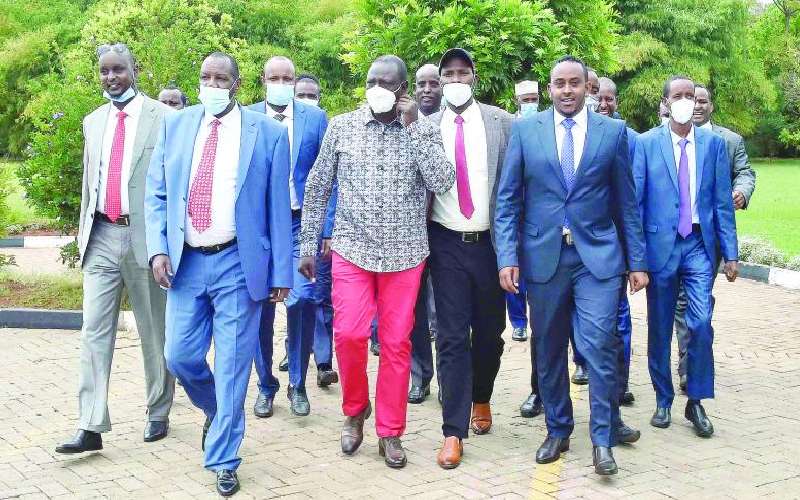×
The Standard e-Paper
Join Thousands Daily

Deputy President William Ruto (centre) with members of Wajir County Assembly at his Karen office, Nairobi yesterday. [DPPS, Standard]
Deputy President William Ruto yesterday insisted on consensus around the Building Bridges Initiative (BBI) report despite proponents of the document giving the clearest signal that Kenya is headed to a contested referendum.